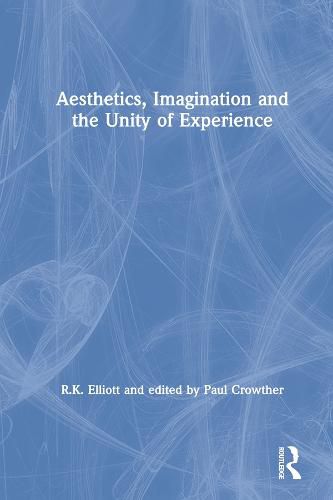Readings Newsletter
Become a Readings Member to make your shopping experience even easier.
Sign in or sign up for free!
You’re not far away from qualifying for FREE standard shipping within Australia
You’ve qualified for FREE standard shipping within Australia
The cart is loading…






This is the first book to gather together R. K. Elliott’s important essays on aesthetics. These essays put forward a number of common themes that together constitute a unified approach to aesthetics. A theory of imagination is developed and ideas concerning the practice of art criticism are explored before the relevance of aesthetics for ethics is discussed. Throughout his writing Elliott combines analytic rigour with sympathy for ideas in continental philosophy. He values subjectivity but his analytic stance prevents this from falling into mere personal opinion; he is also able to show how art and aesthetic theory is of complex relevance to broader areas of experience such as education, freedom, and moral action. In the course of his discussion Elliott offers an in-depth analysis of Kant’s Critique of Judgement, Clive Bell’s aesthetic theory, and the relevance of Wittgenstein for aesthetics. Study of Elliott’s essays presented in this book powerfully illuminates the unifying role of imagination and the aesthetic in human experience.
$9.00 standard shipping within Australia
FREE standard shipping within Australia for orders over $100.00
Express & International shipping calculated at checkout
This is the first book to gather together R. K. Elliott’s important essays on aesthetics. These essays put forward a number of common themes that together constitute a unified approach to aesthetics. A theory of imagination is developed and ideas concerning the practice of art criticism are explored before the relevance of aesthetics for ethics is discussed. Throughout his writing Elliott combines analytic rigour with sympathy for ideas in continental philosophy. He values subjectivity but his analytic stance prevents this from falling into mere personal opinion; he is also able to show how art and aesthetic theory is of complex relevance to broader areas of experience such as education, freedom, and moral action. In the course of his discussion Elliott offers an in-depth analysis of Kant’s Critique of Judgement, Clive Bell’s aesthetic theory, and the relevance of Wittgenstein for aesthetics. Study of Elliott’s essays presented in this book powerfully illuminates the unifying role of imagination and the aesthetic in human experience.